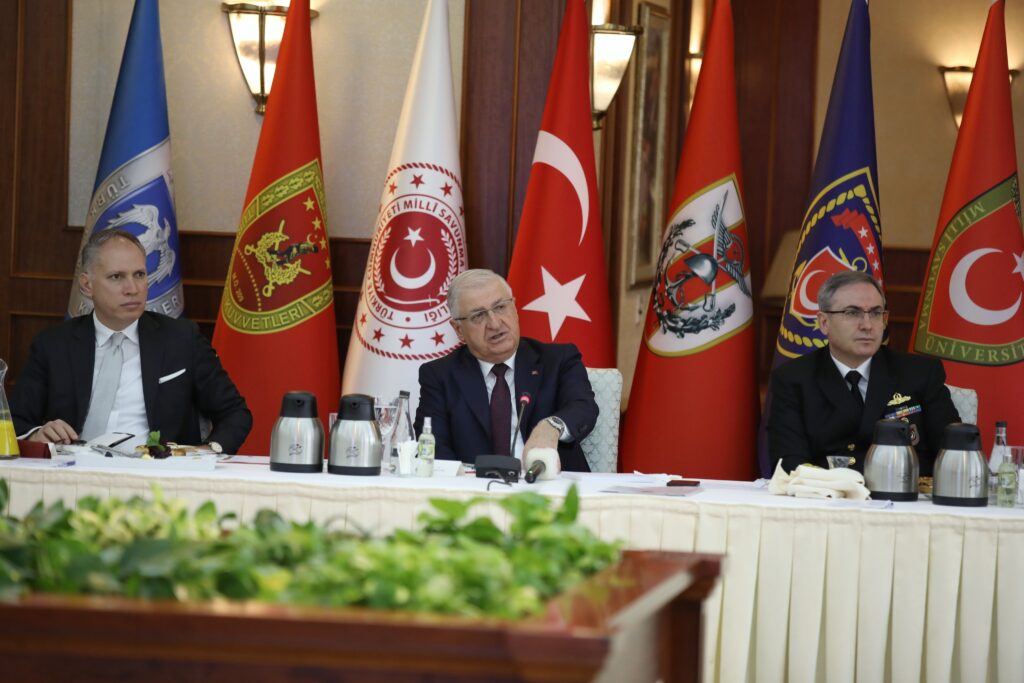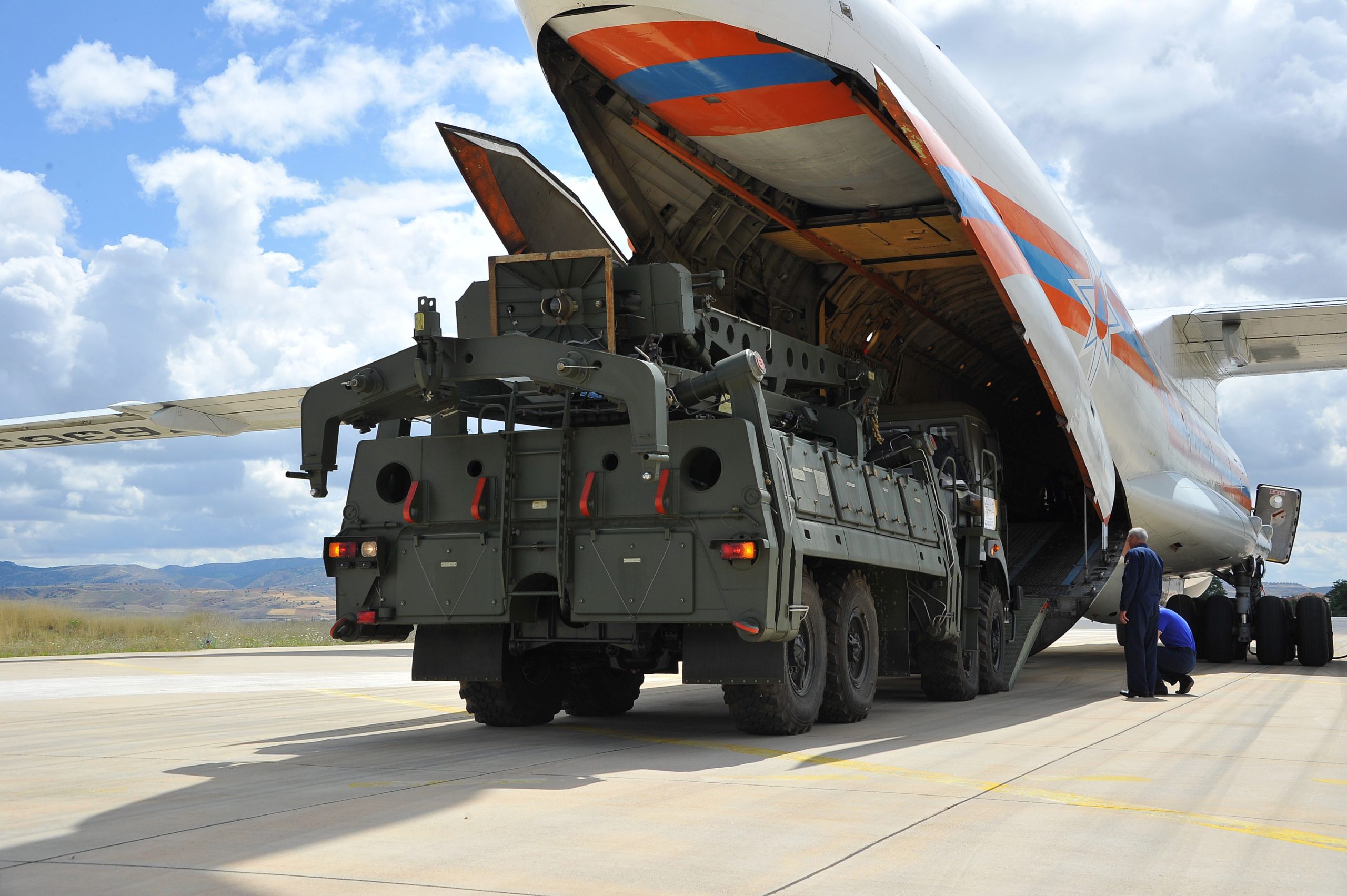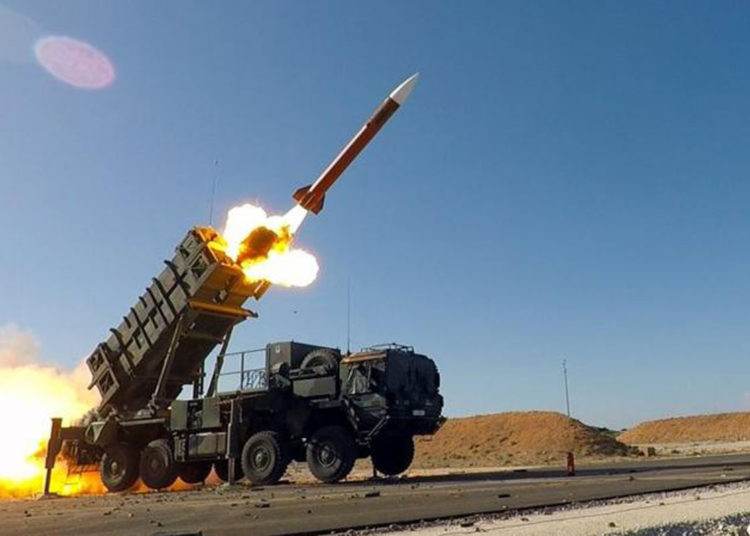Levent Kenez/Stockholm
Turkish Defense Minister Yaşar Güler addressed issues causing tensions between Turkey and the US during an annual meeting with journalists on Saturday, specifically discussing the S-400 long-range missile system purchased from Russia. He subtly confirmed that the S-400 system would be utilized when needed, indicating that the system is not actively awaiting deployment at the moment.
“This is a defense system. Don’t we use a defensive weapon when someone attacks us? No country launches an attack on another by declaring, ‘I will attack you in two hours.’ In a wartime scenario, you need to move your aircraft, operate hundreds of trains and declare mobilization, and so on. In other words, for a country to launch an airstrike on another without anyone noticing is very difficult,” Güler told journalists.

In 2021 the US administration officially removed Turkey from the F-35 Joint Strike Fighter program due to Ankara’s purchase of the Russian S-400 missile system in 2017.
President Recep Tayyip Erdogan had previously announced that Turkey paid $1.25 billion to participate in the F-35 program. Turkey, which was part of the supply chain for F-35 production, was expected to generate $9 billion in revenue. Additionally, the six F-35 aircraft produced for Turkey were not delivered by the United States. Turkey paid approximately $2.5 billion to Moscow for the first batch of S-400s. Experts estimate that Turkey has incurred a loss of $13 billion so far, considering the inactive status of the S-400 system.
Turkey seeks to redirect funds initially allocated for the F-35 program towards the purchase of new F-16 fighter jets. However, negotiations with the US lack clarity. The US also expects Turkey to quickly approve Sweden’s NATO membership to facilitate the F-16 sale, adding further complexity to the negotiations. It is as of yet uncertain whether the congress will approve these arrangements.
Russia sent two S-400 batteries and more than 120 long-range missiles as part of the agreement along with experts to train Turkish soldiers on how to operate them. The second batch has yet to be delivered.
The US has repeatedly warned Turkey that activating the S-400 missiles or buying a second batch would trigger heavier sanctions under the Countering America’s Adversaries through Sanctions Act (CAATSA). On December 14, 2020, the US imposed sanctions on Turkey’s Presidency of the Defense Industry (Savunma Sanayii Başkanlığı, SSB) and certain of its principal officers over the S-400 procurement.
The Turkish government is concealing from the public that the S-400 system has not been activated and is also working to prevent the perception that the money spent on them was wasted. Moreover, the promised technology transfer associated with the purchase of the S-400s has not materialized.
In a 2020 statement to CNN Türk, Russian Ambassador to Turkey Alexei Yerkhov said, ‘Whether [the system] is used or not is a decision for the country that owns it. Turkey purchased the product they wanted from us. The owner of this system is Turkey. It is entirely dependent on what Turkey decides. Whether you go to the beach with it, carry potatoes or mount a machine gun on it for war, keeping it in the ‘garage’ is your right.”
A 2022 report published by the Foundation for Political, Economic and Social Research (SETA), the government-funded propaganda think tank of Turkey’s ruling party, stated that the diplomatic and military balance between Greece and Turkey has deteriorated to the disadvantage of Turkey and that it would be best for Ankara to abandon the purchase of a second batch of S-400 missiles from Russia in order to strike a delicate balance in bilateral relations.
According to SETA experts, pro-Greek lobbies lobbies in the United States have grown stronger as a result of the sanctions imposed by the US on Ankara due to the S-400 purchase.
The report also mentioned that Turkey’s removal from the prestigious F-35 Joint Strike Fighter program, the uncertainty surrounding its purchase of new F-16 Block 70/72 fighter jets and the inability to modernize its aging F-16 fleet have caused Greece, which has invested heavily in its air force, to gain air superiority.
During the ministry’s budget discussions in parliament on November 17, Minister Güler expressed his frustration in response to an opposition lawmaker’s question about the status of the S-400 system, saying, “Where do you think we’re going to use it? Is it a washing machine? Please, you don’t have to form an opinion on every matter, whether you understand it or not. When we need the S-400 system, everyone who wonders what will happen will see when we press the button.”

It had previously become public knowledge that Turkey did not keep the S-400 system in an active status. The revelation that the missiles are stored at an unknown location was made in a speech by former defense minister Hulusi Akar during deliberations at parliament’s Planning and Budget Committee on November 22, 2022.
Akar did not disclose the location where the missiles were stored but claimed that they were ready to be deployed in the event of a threat and once the decision was made where the air defense system would be positioned. His remarks indicated that the Turkish government has deferred plans to activate the S-400s and would not make a decision on where to deploy them any time soon.
He also talked about the time required for the S-400 system to be transported and deployed as he tried to refute the opposition’s accusations that the missiles were nothing more than useless salvage.
“The S-400 requires transport time [for deployment] and after that — 30 minutes according to the manual, but I’ll say an hour — it would be ready in the location to where it was shipped. Everything is ready, so there’s no problem there,” Akar said.
When similar questions were raised by the same committee a year earlier, Akar invoked “state secrets” and said he would not reveal any details about the Russian missiles.
Meanwhile, state-owned defense contractor Aselsan’s then-general manager Haluk Görgün had stated on March 16 that Turkey no longer needed Russian-made air defense systems, elaborating on SİPER, Turkey’s long-range surface-to-air missile air defense system project.
During the Saturday meeting, Güler mentioned that agreements between the SSB and the ministry had been signed for the production of SİPER 1 missiles and batteries. He stated that within two to three years, Turkey will be defending its airspace entirely with indigenous and national systems, having no need for foreign air defense capabilities.












